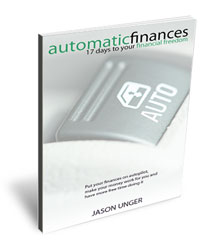
We all try and live our lives without debt, but unfortunately it’s not something that all of us are quite as successful in avoiding as we might like to be.
While payday loan lenders allow for short-term lending in the case of a financial emergency, understanding how best to go about paying off all debts is important for those looking to secure their finances.
Here, we’ve put together a quick guide to paying off your debts to get you started.
List Everything
First thing’s first: you need to know what you’re paying, when it needs to be paid and each debt’s interest rates. The best way to ensure you keep track all of this is to write it down. Whether you use paper or an Excel spreadsheet, record all of the information about your debts to start effectively and efficiently paying them off.
Make sure you record what the minimum payments are for each debt. From here, you’ll be in a much better position to set about organizing how you’re going to pay them all off.
Get Advice
The next thing you need to do, especially if you can’t see any way to do it yourself, is to speak with a financial advisor. You can often find free, independent debt advice which will stop you from delving any deeper into debt.
These advisors will often run you through how best to go about paying off your debt, look at your finances and help you decide where cuts can be made to put towards paying it off and help you better prepare for future payments.
Get An Authorized Overdraft If You Need To
If you know you’re going to hit your overdraft before your next payday, the best thing you can do is contact your bank about arranging an authorized overdraft.
Unauthorized overdrafts tend to come with some hefty charges and so it’s always best to contact your bank to authorize and provide you with an overdraft limit. Ensuring you don’t exceed this limit, this can work out to be one of the simplest and most affordable ways to pay off pressing debts and slowly work your funds back up again.
Pay Off Debts Before Saving
If you’ve got a savings account that you’re regularly paying money into, it could be worth cutting this down and putting more of that money into paying off your debts.
An emergency fund is highly suggested, but any excess savings may be better put on hold while you pay off any pressing debts. Alternatively, using your savings to pay off your debts could save you hundreds by staving off interest charges!
Pay Off One At A Time
Trying to pay off all of your debts at once could be very challenging. Rather than trying to spread all of your spare cash across every debt you owe, you could focus on one at a time.
You could pay the minimum on every debt and then put more money into the debt with the highest interest rate to ensure it gets paid off long before it can accumulate excess charges.
While it can be tempting to pay only the minimum each month, knowing how to effectively pay your debt can save you hundreds. Hopefully our guide has given you a good starting point.
Photo by Ruth Enyedi on Unsplash



